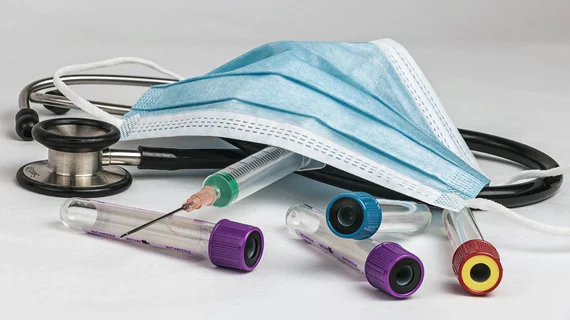Johnson & Johnson’s HIV vaccine trial fails
Johnson & Johnson has discontinued its Mosaico clinical trial that aimed to protect against HIV after its Phase 3 study revealed the regiment was safe but ineffective.
The Janssen Pharmaceutical Companies of Johnson & Johnson announced the discontinuation of the trial after the study’s independent Data and Safety Monitoring Board (DSMB) found the HIV vaccine regimen was not effective in preventing HIV infection compared to a placebo. The study was based off “mosaic” immunogens—vaccine components featuring elements of multiple HIV subtypes—with the goal of inducing immune responses against a wide variety of global HIV strains, according to the National Institutes of Health (NIH).
“We are disappointed with this outcome and stand in solidarity with the people and communities vulnerable to and affected by HIV,” Penny Heaton, MD, global therapeutic area head, Vaccines, Janssen Research & Development, said in a statement. “Though there have been significant advances in prevention since the beginning of the global epidemic, 1.5 million people acquired HIV in 2021 alone, underscoring the high unmet need for new options and why we have long worked to tackle this global health challenge. We remain steadfast in our commitment to advancing innovation in HIV, and we hope the data from Mosaico will provide insights for future efforts to develop a safe and effective vaccine.”
The Mosaico Phase 3 trial began in 2019 and completed vaccinations in October 2022. Approximately 3,900 cisgender men and transgender people who have sex with cisgender men and/or transgender people, who represent groups and populations vulnerable to HIV were included in the study. The participants included over 50 trial sites in Argentina, Brazil, Italy, Mexico, Peru, Poland, Puerto Rico, Spain and the United States.
“The study evaluated an investigational vaccine regimen containing a mosaic-based adenovirus serotype 26 vector (Ad26.Mos4.HIV) administered during four vaccination visits over one year,” according to Johnson & Johnson. “A mix of soluble proteins (Clade C/Mosaic gp140, adjuvanted with aluminum phosphate) was also administered at visits three and four.”
The DSMB analysis showed the regimen does not protect against HIV and the study is not expected to meet its endpoint, though no safety issues were identified. The findings come after an analysis of the Phase 2b Imbokodo study, which was announced in August 2021 and found a similar investigational HIV vaccine regimen did not provide sufficient protection against HIV in a population of young women in sub-Saharan Africa.
The Mosaico trial included several partners, including the National Institute of Allergy and Infectious Diseases (NIAID), which is part of the NIH, the HIV Vaccine Trials Network (HVTN), the U.S. Army Medical Research and Development Command (USAMRDC) and Janssen Vaccines & Prevention B.V.

